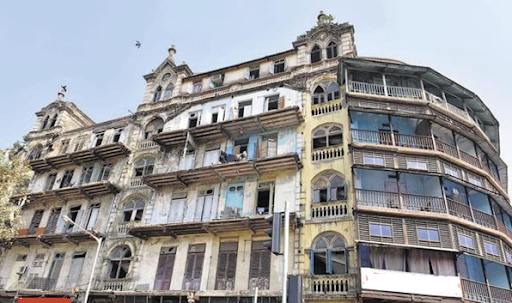
Jer Mahal Estate, a six-building complex, is still home to about 23 kudds, each named after the Goan village it serves.
When the Portuguese ruled Goa, most inhabitants were engaged in agriculture/horticulture, salt farming, fishing, toddy tapping, cashew plantation, etc and earning a meagre income. Some young men looked beyond these occupations and found employment as seamen on merchant ships. Around 150 years ago, Goans primarily sought migration from Goa to Kolkata, Pune, Bombay, and Karachi. Over the 19th and 20th centuries, many Goans migrated to British Bombay for job opportunities as seamen and in various trades, leading to the establishment of "kudd" during this period.
"Kudd," which means room, refers to dormitory-like lodgings that served as a temporary "home away from home" for Goans from low-income and rural families with limited education. It was just a comfortable stopover before proceeding to their destination. These lodgings or clubs were named after Goan villages like Club of Chapora, Clube of Taleigao, St. Mathias Union, Club of Colvalle, Club of Sucorrincares, Sacra Familia Club of Chorao, Saligao Club, Grand Club of Vernecares, Club of N. S. de Conceicao de Velim, Club of Sanvordemcares, Club of Saisurcares, Club of Carmettcares de Velim, St.Sebastian Club of Siolcares, Grand Club of Assolna, Club of Vilhanvado Murida,, Grand Club of Lotolimcares, Club of Moira, Piedade Union of Divar, etc, provided temporary shelter for Catholic men from specific villages. Members pay monthly rents of less than Rs300 for unlimited access to club amenities during their stay.
Eligibility and arrangement in Kudd
Kudds provided Goans temporary lodging while they sought employment and facilitated networking among those in Mumbai for work, on transit to board the ship, or returning from voyages. For example, in most cases, only a person from Santo Stev is accepted into the Club of Santo Stev; others cannot stay there. Often, they would leave belongings behind in a trunk with their name or membership number written on it.
Members are allowed only one trunk each to keep for luggage. These metal crates line the walls, neatly storing the belongings of young men identified only by their first names —Noel, Freud, Wilbon, Santan, Ciprian, Dominic, Caitan, Luizinho, Andre, Joao, Marcelino, Gabriel, Tomazinho, Pedroanton and so on.
Kudds were exclusive to Goan Catholic men, as they typically worked in Mumbai without their families. Initially, kudds developed from rented rooms under the Pagdi system and are now overseen by elder member committees. Located mainly in Mazagaon, Dhobi Talao, and Chira Bazaar neighborhoods, they provided lodging while better-paid workers opted for private housing.
Under the Pagdi system, tenants paid the landlords nominal rent compared to market rates and could sublease or sell the property, acting almost as co-owners. Oral agreements were crucial for property transfers, with tenants receiving rent receipts and making total payments directly to the landlord.
All kudds feature a common area with an altar in the center, shared restrooms, and a kitchen; beds are not allowed. These clubs operate under strict regulations. Mandatory activities include attending the Angelus and rosary at 8 pm, lights out by 10:30 pm, and rolling bedding by 8 am. On Sundays, members must participate in cleaning. Rules remain unchanged; the evening rosary is compulsory, drinking is permitted responsibly, and card games are allowed on specific days. Violations result in assigned cleaning duties as punishment.
The dying heritage
In the 1960s, Bombay boasted around 300 kudds, but their numbers have since declined. Concentrated in Mazagaon, Dhobi Talao, and Chira Bazaar, many face challenges as landlords sell these structures to real estate developers. In their heyday, kudds were so crowded that members jostled for place to spread their mats out and sleep.
Today, most Goan who migrant are educated and skilled and prefer not to join kudds or use their dorms. Of the city's kudds, only about 160 remain, according to the Federation of Goan Club. Members now pass the time with music, carom, and occasional TV, replacing traditional games like tabblam. Meals are often sourced from local eateries or cooked communally, featuring dishes like fish curry, rice, vindaloo, and, increasingly, pasta and pizza.
Funded by patronage and membership fees, these clubs provided Goan hospitality for community members to maintain their cultural identity in Bombay. The Club of St. Anthony in Mazagaon is among Mumbai's dwindling number of approximately 100 remaining kudds. Established in 1880, it holds over 140 years of history. With such heritage, these properties hold substantial value and promise significant returns, highlighting the urgent need for preservation and governmental financial support.